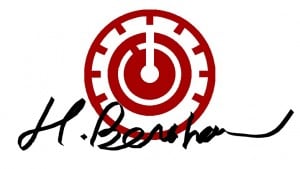Quar nous navons volu ne volons le Temple mettre en aucune servitute se non tant come il hy affiert.
For we did not and do not wish the Temple to be placed in any servitude except that which is fitting.
Jacques de Molay
In the past, the ability of any group or idea to coordinate itself relied upon an efficient organization. Thanks to technology, this fact may soon be obsolete and it may be possible for individuals to organize society without the need for monolithic organizations, states and institutions at all.

Image via https://oclccog.wordpress.com/
We have governments that claim to have conquered the Internet, and with this conquest, to control your hearts and minds. They have failed. While states may be more capable of the voyeuristic triumph of listening in on your private communication, this capability is worthless to the goal of actually disorganizing or degrading one’s opponents or in any way keeping a regime safe from the wrath of the people.
More disturbing than mere surveillance, for dissidents, could be the so-called “Four Ds” now available to tech-savvy regimes that wish to damage their opposition. Or, Deny/Disrupt/Degrade/Deceive. It is something that came to my own attention when I read Glenn Greenwald’s book No Place to Hide, where the means of such operations are quoted from slides leaked from the intelligence services. The slides speak of means by which an individual can be dishonestly smeared, discredited and destroyed by the government using fabrication of evidence and impersonation in the Internet, isolated from his friends and allies so as to dampen and ultimately silence the dissident’s voice. The fact that this strategy to silence political criticism was authored by so-called defenders of democracy (or Boris Johnson’s “people who keep us safe!”) only proves the extent of their cynicism. These are people who will stomp democracy’s face into the pavement to “defend” it from alleged terrorists.
The obvious solution to this type of threat to the online body politic is clear. One must not become attached to any individual voice on the Internet, but heed a vast selection of voices. Further, one must not work alone via the Internet but must build effective networks, through which no-one worships any one personality but instead tunes in to the voice of the whole collective.
One man and his laptop is no threat to any government, but that is what governments have decided to target and brand as a threat. Even the most skilled hacker in the world can be tracked down and captured or eliminated by a determined government. What governments have no defense against are thousands of people and their laptops. In time, their obsession with lone hackers and lone dissidents, whether that individual is Dread Pirate Roberts, Edward Snowden, or Julian Assange, will seem as foolish as deciding to attack a single bee.
Governments and laws remain still a century (and increasing) out of date with modern technology, as are many other organizations and institutions, including the vast majority of political parties including those who claim to be at the frontlines of social and technological change. It is not that these institutions aren’t tech-savvy. It’s that, in this modern world, they should no longer exist at all. The very forms of democracy and the management of the economy in the present day are sclerotic and broken institutions, and the existence of “political parties” at all is a hangover from a time when people needed newsletters and leaflets delivered by hand. The fact is that one person can achieve through the Internet today what it would have taken an “organization” of hundreds of lackeys to achieve in the past.
Almost every function of such archaic organizations, from fundraising to the coordination of important events, can be achieved now using the organizing power of the Internet, without setting up any formal organization in the first place. The fact that the Internet can be used to organize makes it unnecessary to have any “organization” (noun) in the conventional sense to organize (verb). Even the validity of “authority” or “fame” has been weakened by the Internet and seems rather primitive now, as anyone can spring from the collective voice to rally his peers at least for a brief instance, before retreating back into obscurity.
This modern potential for organization without organization is much like the accompanying emergence of new currencies without banks (bitcoin being the best example). As more and more mundane aspects of organization are taken over by machines, it is not only the low-ranking worker who finds himself without a purpose but the oligarch and the parasite also finds himself without a purpose. Those who prided themselves on their ability to manage a business or government from some headquarters may simply not be needed anymore to achieve effective governance.
The world has barely begun to adjust to the arrival of the Internet as political and economic force, and the changes that will be made possible now will cause unbearable agony and catastrophe to the institutions and halls of power that once bragged about creating these technologies in the first place. Pandora’s Box has been opened, it cannot be closed. It isn’t that I am an anarchist or have anything personal against archaic forms of organization or hierarchy, but that I simply see humanity gradually learning and equipping itself to get by just fine without such bodies existing at all.


